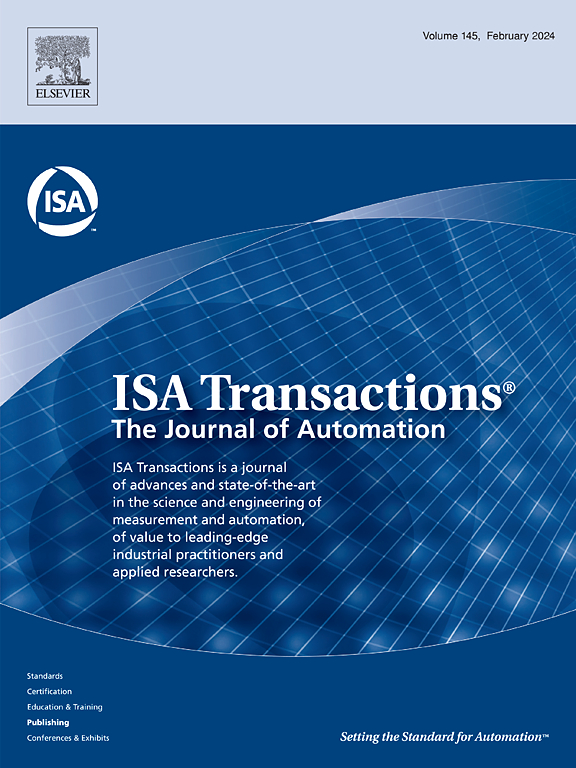Learning-based optimal boundary control for parabolic distributed parameter system with actuator dynamics
IF 6.3
2区 计算机科学
Q1 AUTOMATION & CONTROL SYSTEMS
引用次数: 0
Abstract
Considering actuator dynamics, we investigate a coupled system of parabolic partial differential equations (PDEs) and ordinary differential equations (ODEs), developing a data-driven boundary optimal controller based on iterative learning. Notably, the boundary input appears in the ODE-style actuator dynamics, making the boundary condition reduction quite difficult. Optimizing infinite-dimensional performance indexes in coupled Hilbert spaces is not a trivial task. This work is the first to solve the optimal control problem for a coupled PDE-ODE system with actuator dynamics under Neumann boundary conditions. We equivalently reformat the coupled PDE-ODE system into a system with homogeneous boundary conditions and then derive its singular perturbation form in an infinite-dimensional space. Subsequently, by constructing critic and actor networks, we design a novel model-free iterative learning optimal control algorithm where weighted residual techniques are used. The algorithm uses a rich set of arbitrary control policies rather than limiting to evaluation policies, enhancing the exploration capability of the learning algorithm and relaxing the requirement for persistent excitation conditions. Furthermore, the uniformly asymptotic stability of the closed-loop coupled system is demonstrated in the infinite-dimensional Hilbert space for each learning iteration, not only for the final one. Finally, the effectiveness of the proposed approach is verified by simulations on the diffusion-reaction process.
具有作动器动力学的抛物型分布参数系统基于学习的最优边界控制。
考虑致动器动力学,研究了抛物型偏微分方程和常微分方程的耦合系统,开发了基于迭代学习的数据驱动边界最优控制器。值得注意的是,边界输入出现在ode型作动器动力学中,使得边界条件的简化相当困难。在耦合希尔伯特空间中优化无限维性能指标并不是一项简单的任务。本文首次解决了在诺伊曼边界条件下具有作动器动力学的耦合PDE-ODE系统的最优控制问题。我们等效地将耦合PDE-ODE系统重新格式化为具有齐次边界条件的系统,然后推导出其在无限维空间中的奇异摄动形式。随后,通过构建评论家和演员网络,我们设计了一种新的无模型迭代学习最优控制算法,其中使用了加权残差技术。该算法使用了丰富的任意控制策略集,而不是局限于评估策略,增强了学习算法的探索能力,并放宽了对持续激励条件的要求。进一步证明了闭环耦合系统在无限维希尔伯特空间中的一致渐近稳定性,不仅适用于最后一次迭代,而且适用于每次学习迭代。最后,通过对扩散反应过程的仿真验证了该方法的有效性。
本文章由计算机程序翻译,如有差异,请以英文原文为准。
求助全文
约1分钟内获得全文
求助全文
来源期刊

ISA transactions
工程技术-工程:综合
CiteScore
11.70
自引率
12.30%
发文量
824
审稿时长
4.4 months
期刊介绍:
ISA Transactions serves as a platform for showcasing advancements in measurement and automation, catering to both industrial practitioners and applied researchers. It covers a wide array of topics within measurement, including sensors, signal processing, data analysis, and fault detection, supported by techniques such as artificial intelligence and communication systems. Automation topics encompass control strategies, modelling, system reliability, and maintenance, alongside optimization and human-machine interaction. The journal targets research and development professionals in control systems, process instrumentation, and automation from academia and industry.
 求助内容:
求助内容: 应助结果提醒方式:
应助结果提醒方式:


